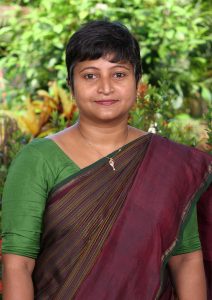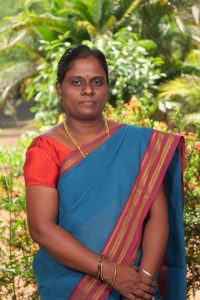Personality Development-1
Semester III
30 hours
Unit 1: Self Exploration- Introduction to Human Development and Resource Development- course objective and expected outcome- self-discovery, self-acceptance, self-esteem, self-confidence, physical and cultural aspects of personality- Indian cultural sensitivity leading to self-identity.
Unit 2: Character building- Ethics, Morality and Values: An understanding – Need for values, Kinds of Values, Value conflicts, Value clarification and Value acceptance.
Unit 3: Interpersonal relationship: Importance of Interpersonal relationships in the present context- kinds of relationships, overcoming prejudices, basic principle of building and sustaining relationships, personal vs. professional conflict, submissive, assertive, and aggressive relationships.
Unit 4: Time and Stress Management: Importance of time – Managing time -the art of prioritizing and scheduling, stress, and source of stress, recognizing emotions and value of regulating emotions.
Unit 5: Vision and goal setting- personal goal, career goal clarification, understanding organizational goals, congruence of goals, positioning oneself in the context of organization / society, expectation management – critical nature of reaching targets.
Personality Development
Semester IV
30 Hours
Unit 1: Communication skills- Tools of communication (Oral, written, one way, two way, vertical and horizontal and lateral), Business communication, Body language, Listening skills, Assertive communication, Etiquette (Personal, social, telephone, email and global), Frequently asked questions (FAQS).
Unit II: Problem solving and resolution- Mind skills, out of box thinking, creative thinking, analytical and synthesizing reasoning, intuition and extra sensory perception, conflicts within and among groups, conflicts in social organizations, resolution of conflicts, dealing with and managing conflicts, De Bono 6 thinking hats.
Unit III: team building – formation of team, Phases of group growth process (Forming, norming, storming, performing and adjourning and reviewing), skill development to be a team player / team leader, influencing process, Leadership, win-win situation, proactive skills, synergy.
Unit IV: integrated personal excellence, motivation, positive and negative; Internal and external, motivated performance, Personal grooming, attitudes, confidence building, reinforcement, potential and competence management, creative performance, geared to integrated personal excellence.
Unit V: Placement preparation: resume writing, group discussion, role play, interview, Mock interview, emotional intelligence, Introduction-Broad organizational cultural sensitivity.
Soft skill programme for the postgraduate students:
Consequent on the intimation from the University of Madras which envisages the introduction of soft skills at the PG level in non-autonomous Colleges, Madras Christian College has taken the initiative of offering soft skill at the postgraduate level from the academic year 2007-08. Soft skill programme is mandatory for postgraduate students and they undergo training during the II and III semesters for two hours in each cycle.
As the very term explains, Soft skills are those skills that can be developed without much effort on the part of the learner. The term accommodates several areas under its repertoire under the soft skills we have included three broad areas. They are:
- GROUP A- Personality Enrichment (4 credits, 30 hours)
- GROUP B- Communication Skill (2 credits, 15 hours. Student chooses on language: English/German/French)
- GROUP C- Career Coping Skill (2 credits 15 hours student chooses on skill: computer Training/Public Relations / Quantitative Aptitude)
Group A- Personality Enrichment:
The objective is to enable students to assess their potentials and meet with challenges in career and life that will boost their employability and effectiveness.
- Unit 1- Developing Mind skills, quizzes, General Knowledge, Puzzles, you ought to know, guess right, who is who? An ongoing task for the student during the semester.
- Unit 2- Emotional Intelligence, coping with emotions, Interpersonal conflicts, Emotional & rational balance.
- Unit 3- Leadership, Assessing Leadership Qualities, Experiential learning of leadership skills exercise in teamwork.
- Unit 4- Developing lateral thinking, Problem-solving skills, Purpose-driven decisions.
- Unit 5- Change, Coping skills, Critical and Adaptive Mindsets, Changes in career/life / people.
- Unit 6- Etiquette, Social etiquette, Business etiquette, Civic sense, Social norms.
Faculty:
Trained Facilitators of Dr. Devanesen Center for Human Resource Development
Communication skills:
- English- Department of English
- French – Department of Languages
- German- Department of languages
Career Coping skill:
- Computer skill- Department of MCA
- Public Relations- Department of Communication and Public Administration
- Quantitative Aptitude- Department of Mathematics and Statistics.
Assessment:
There is only Continuous Assessment. It may consist of Tests / Assignments/projects/ case study, class participation or any other Practical, Aggregate marks =100.
Consultancy:
The centre also offers by way of consultancy to outside institutions, schools, and colleges on request Personality Development Programs. We have trained several men and women since 2004. Institutions as Ethiraj College, SDNB Vaishnava College, MCC Higher Secondary School, Christ King Higher Secondary School, and employees of Universal Moulds, Madipakkam, SNR Motors, Guindy and NGOs have been beneficiaries our programme.



